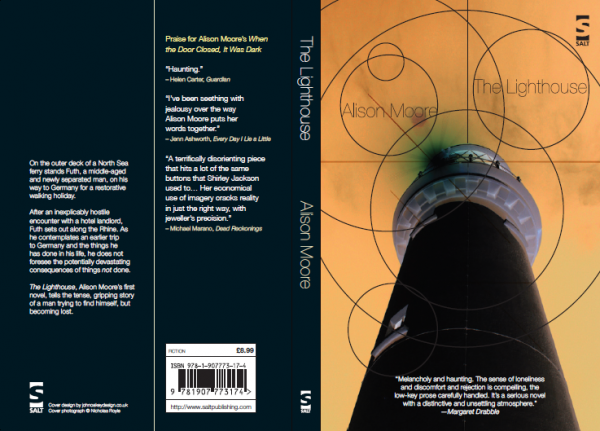In 1972, the then four-year-old Booker Prize was awarded to the novelist, poet and art historian John Berger’s G, an experimental picaresque set in Belle Époque Europe. Even now, it’s a text which strikes most as formally risky and politically recalcitrant, a steep intellectual incline designed to ascend beyond the ceiling of bourgeois complacency and, as such, a spectacularly unlikely recipient of an accolade normally claimed by novels which are variously glib, adipose, winsome, fitful, ephemeral, affected and pompous. Undeniably the most uncompromising of Booker winners, G‘s militancy was underscored – and arguably exceeded – by Berger’s victory speech, which he used to point out that sponsors Booker McConnell had initially become wealthy by using slave labour in the Caribbean. Consequently, he went on, he would donate half the £5,000 prize to the British Black Panthers, and use the remaining money to fund a study into the conditions of Europe’s migrant workers.
Berger’s gesture is one of only a very few fuck-yeah moments to have occurred anywhere near the mainstream of British literary culture in the last half-century. The Booker, which actually has the temerity to celebrate the 1972 controversy on its website, has become emblematic of malaise, careerism and mealy political equivocation. While there have been dark-horse successes that have chafed against the grain, such as James Kelman’s raging, demotic How Late it Was, How Late in 1994, its recent winners have largely been one-paced studies of middle-class domestic disquiet, unthreateningly quirky allegories or sententiously melancholy contemplations of memory and aging.
While most of these have been informed on some level by modernist rule-breakers such as Joyce, Woolf, Beckett and Kafka, they are largely concerned with incorporating the technical advances of these authors into sellable narratives rather than committing to an avant-garde spirit of ongoing experimentation. John Banville’s 2005 winner The Sea, to name one particularly egregious example, clearly engages with Beckett’s preoccupation with the human compulsion to keep communicating throughout the experience of bodily decay, but transposes this concern from the fractured, repetitive, non-sequiturial structures of a novel like The Unnameable to a stylistic idiom more amenable to holiday readers. Young authors who have attempted to persevere with extending fiction’s repertoire of estrangement effects – think, for example, of David Peace, whose nightmarish Yorkshire-based police procedurals nod as much to William Burroughs as to Chandler or Hammett – are usually ignored, as are modernistically-inclined fantasy writers like China Miéville and M. John Harrison. Additionally, the output of independent publishers has typically been overlooked, suggesting politicking by the bigger names in the industry on behalf of their lists.
It’s against this backdrop that the two-stage nomination process for this year’s prize has taken many by surprise. The shortlist, released last week, contains two novels from indies, namely Alison Moore’s The Lighthouse (from Norfolk-based poetry specialists Salt) and Deborah Levy’s Swimming Home (from And Other Stories, who have excelled recently in bringing out translations of formally-daring foreign-language works).
Levy’s work, despite its middle-class family holiday setting, is an awkward, hard-to-fathom piece in which complex imagery refuses to reveal itself as decipherable metaphor: its ancestors include notorious French mind-screwers Alain Robbe-Grillet and Philippe Sollers, as well as Anglophone nonconformists Brigid Brophy and Ann Quin. The Booker doesn’t normally validate writing as semantically and tonally slippery as this, especially when it’s underpinned – as Levy’s indeed seems to be – by left-leaning political critique.
Swimming Home, one goes on to note, isn’t the only unconventional novel on the shortlist. Will Self’s Umbrella, its title a nod to Joyce’s Ulysses, marks a departure for its author in its employment of a determinedly reader-unfriendly stream-of-consciousness, a word-thicket which celebrates modernism’s formal difficulty even if it doesn’t really build on it. Considering the presence of Ned Beauman’s chronologically-skewed, genre-indeterminate The Teleportation Accident in the longlist, it appears to many as if the Booker has changed its conservative spots. All of a sudden, the prize has brought a previously marginalised avant-garde, small-press scene under the spotlight, thus opening itself to the potentials of the literary underground.
Or perhaps not. One context for this sudden receptiveness to risk is the emergence of a hipster-friendly spin on modernism, a move which has seen some of yesterday’s apathetic Nathan Barleys become today’s Le Corbusier-conversant utopians. In fiction, this trend has been marked by the rise to (comparative) popularity of writers like Tom McCarthy and Lee Rourke, London-based authors praised by many critics for their willingness to challenge the complacency of the McEwan-dominated mainstream. Notwithstanding the fact that this set of novelists generally seem better at recapitulating experiments of the past rather than generating their own – and are therefore ‘modernists’ only in a self-identifying sense – their emergence has exerted a degree of pressure on publishers and prize committees to find writers who challenge the nineties-noughties paradigm of wistful, earnest narratives ripe for adapatations starring Keira Knightley and James McAvoy. It’s important at this moment in time for agents to pick up ‘talent’ at least capable of talking the talk when it comes to experimentation.
Added to this is the fact that the judging committees are anything but daft, and are surely alert to a growing indifference to the award born out of its apparently limitless deference to the middlebrow. Large-scale cultural institutions might slip out of touch for a while, but they’re usually aware of when an injection of edginess is necessary in order to reclaim a semblance of relevance. The current sponsors are the Man Group, who specialise in ‘alternative investments’; that is, ways of multiplying capital through the appreciating value of wine or artwork rather than stocks and shares. Art-world liberals like to kid themselves that the corporate sector is incapable of attuning itself to shifts in aesthetic temperature, but that’s ultimately a myth designed to lend culture the aura of autonomy and creativity that, slightly perversely, makes it attractive to investors in the first place. The truth is that Man are fully sensitive to the need of the prize they back for a little re-branding.
None of this is to necessarily to suggest any purposeful complicity between individual texts up for this year’s Booker and the corporate agendas which steer literary culture both with the stick of market-focused editing and the carrot of prizes. Swimming Home in particular is disturbing and tricksy in an absolutely admirable way, and – like the independent publishers recognised by the shortlist – deserves greater celebration. Mainstream prize nominations are, however, probably the wrong sort of validation for oppositional literature: while the money received by the victor (which has multiplied tenfold since Berger’s win) could sustain a previously struggling writer for a couple of years, and the publicity and finance garnered through a short-listing could enable an indie publisher to budget for more ambitious projects, the Booker ultimately serves to mute dissent through co-option. A hypothetical ‘radical’ winner would have to be prepared to see its radicality tasked with imbuing corporate interests with the suggestion of countercultural menace.
On top of this – and, let’s face it, there are some of you who will be tutting that this tale of the commodification of avant garde energy is (at least) as old as modernism itself – there’s the inevitability of any out-of-the-ordinary winner provoking major publishers to go looking for the next neo-modernist sensation. Agents will suggest to those they represent that they stylise their work with Robbe-Grillet-derived indeterminacy or Beckettian temporal circularity, and these gestures towards an extant repertoire of ‘experiment’ will be at the cost of anything truly deserving of that term. Publishing fads, so often the effect of prize decisions, can retrospectively sap a powerful original of political and aesthetic force, and the thought of a wave of Booker-derived weirdness which merely apes the genuine risks taken by Levy is a depressing one.
Prize culture, then, is something which needs to be questioned and, where necessary, objected to publicly. Since Berger, no Booker winner, regardless of their stated political persuasions, felt obliged to hold the historical genesis of the award to account or raise the issue of how a prize-oriented publishing culture leads to literary homogenisation. Perhaps this will be the year that the underground gets the opportunity to voice its objections.



